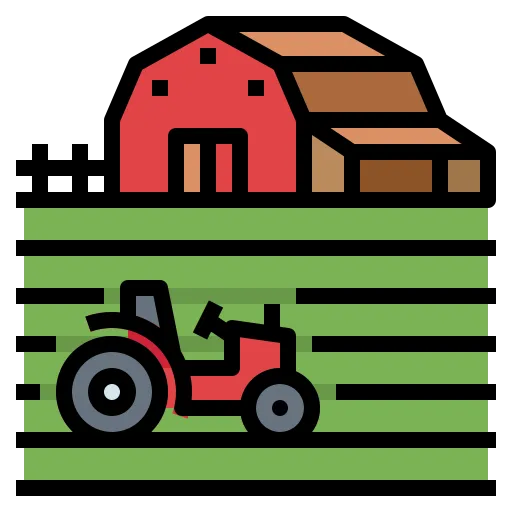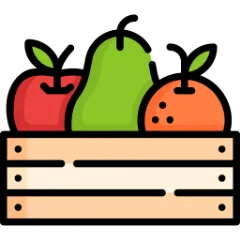Publications
Categorías

This document is a technical report of suitability zoning for production with increasing technology of pigs (Sus scropha domesticus) in farms for commercial purposes for national and export markets, scale of 1:100,000, prepared by UPRA, as a result of processes of strengthening planning of efficient use of rural land and land adaptation at a national level carried out by UPRA, aimed at directing investment in the agricultural sector.
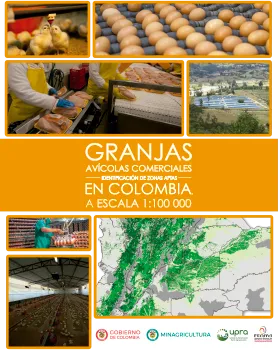
This document is a technical report of suitability zoning for commercial exploitations of poultry farms (Gallus gallus species) at a national level, scale of 1:000,000, product of a joint effort (Agreement 148 of 2014) between the National Federation of Poultry Farmers (Fenavi), the National Poultry Fund (Fonav) and the Rural Agricultural Planning Unit (UPRA). These entities decided to join forces in the formulation of guidelines, criteria and public policy instruments to promote productive planning of the poultry chain, within the framework of processes of strengthening planning of efficient use of rural land and land adaptation at a national level carried out by UPRA, aimed at directing investment in the agricultural sector, and the mission of Fenavi, working for the sustainability, growth and competitiveness of the poultry sector.
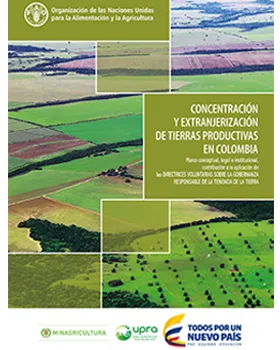
It proposes a context and general theoretical framework, along with a specific conceptual outline for the Colombian case. It defines the categories of concentration, accumulation, land grabbing, and foreign ownership of productive rural lands. Drawing on the contents of existing literature and data, the study addresses dynamics and processes related to land ownership and tenure, investments, equitable access and use, as well as the legal and policy evolution. It examines current positive and negative incentives, advantages, and limitations.
The study includes a diagnosis of the Colombian case, a methodological proposal for identifying, observing, and estimating risks associated with large-scale investments in productive rural lands in Colombia. Additionally, it highlights certain observations and findings, and offers recommendations for public policy. Keywords: concentration, foreign ownership, land grabbing, accumulation, productive rural lands, land tenure, large-scale investments, food security, rights-based approach, risk assessment.
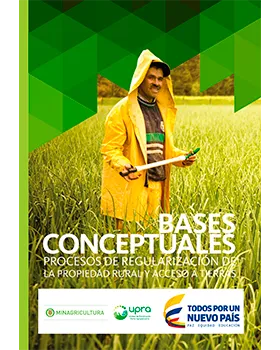
This document contains conceptual bases for the process of legalizing rural property in Colombia. It shows its importance in the development of the agricultural sector, since with its implementation, life quality of rural inhabitants is improved by increasing their heritage and giving greater possibilities of accessing credit markets, thus allowing long-term investments for the execution of productive projects.
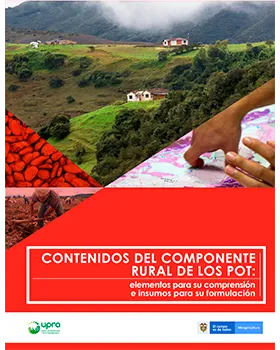
An understanding of the postulates found in the Political Constitution of Colombia regarding issues related to rural development and food security, among others, are some of the issues that will be addressed in the first part of this document, which in turn are the basis of legislative developments expanded below, such as Law 388 of 1997, Law 1454 of 2011 and Law 1625 of 2013. For each law, some contents and elements are presented, as well as inputs available for the formulation of said contents; the foregoing, from its relationship with rural land use planning, with greater emphasis on rural land management in agriculture and "Management of land for agricultural uses" (Gestua).
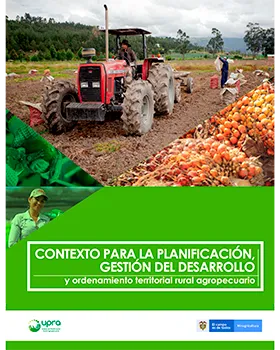
This document deals with interrelationships between growth, development and land use planning, and about new approaches to development and land use planning in rural agriculture. It is mainly aimed at contributing to new land use planning processes, promoted through a modern POT program, proposing elements for reflection and analysis that allow us to transcend the traditional approach to land use planning focused on physical aspects of land use and a sectoral treatment, limited to the systemic nature of the territory and the need to broadly include processes of social construction of the territory.
Pagination
- First page
- Previous page
- …
- 7
- 8
- 9
- …
- Next page
- Last page


